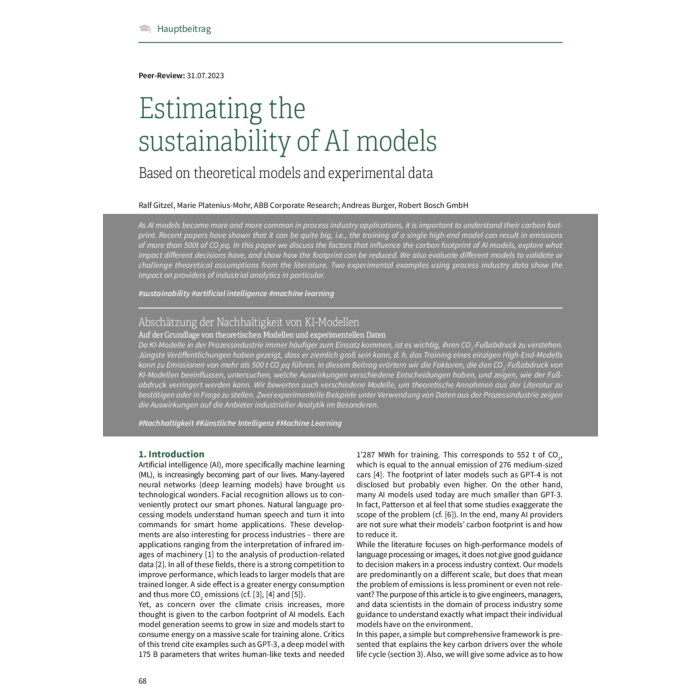Estimating the sustainability of AI models
4,90 €
Auf Lager
Artikelnummer
03654_2024_03_03
Based on theoretical models and experimental data
As AI models become more and more common in process industry applications, it is important to understand their carbon footprint. Recent papers have shown that it can be quite big, i.e., the training of a single high-end model can result in emissions of more than 500t of CO2eq. In this paper we discuss the factors that influence the carbon footprint of AI models, explore what impact different decisions have, and show how the footprint can be reduced. We also evaluate different models to validate or challenge theoretical assumptions from the literature. Two experimental examples using process industry data show the impact on providers of industrial analytics in particular.
| Autoren | Ralf Gitzel, Marie Platenius-Mohr, Andreas Burger, |
|---|---|
| Erscheinungsdatum | 15.03.2024 |
| Format | |
| Verlag | Vulkan-Verlag GmbH |
| Sprache | Deutsch |
| Seitenzahl | 9 |
| Titel | Estimating the sustainability of AI models |
| Untertitel | Based on theoretical models and experimental data |
| Beschreibung | As AI models become more and more common in process industry applications, it is important to understand their carbon footprint. Recent papers have shown that it can be quite big, i.e., the training of a single high-end model can result in emissions of more than 500t of CO2eq. In this paper we discuss the factors that influence the carbon footprint of AI models, explore what impact different decisions have, and show how the footprint can be reduced. We also evaluate different models to validate or challenge theoretical assumptions from the literature. Two experimental examples using process industry data show the impact on providers of industrial analytics in particular. |
Eigene Bewertung schreiben


